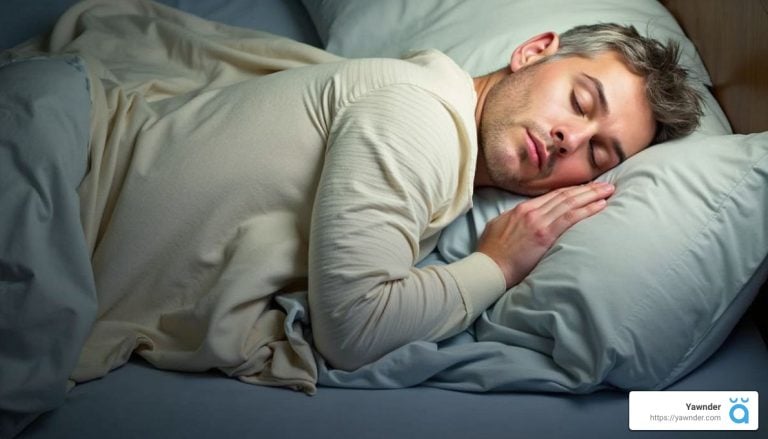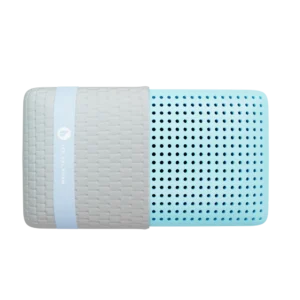A Comprehensive Guide to Using Beta Blockers for Sleep
Overview of Beta Blockers for Better Sleep
Beta blockers, often utilized to manage hypertension and other cardiovascular conditions, may not be the first choice for tackling sleep disturbances. While they effectively lower heart rate and blood pressure, it’s crucial to recognize their impact on sleep quality. As we delve into how beta blockers can affect your nightly rest, we’ll uncover both their potential benefits and drawbacks.
Understanding Beta Blockers and Their Sleep Effects
What Are Beta Blockers?
Beta blockers are a class of medications designed to treat various cardiovascular issues, including high blood pressure, arrhythmias, heart failure, and angina. By blocking the effects of adrenaline on the heart, these drugs reduce the heart’s workload, thereby lowering blood pressure.
How Do Beta Blockers Affect Sleep?
While beta blockers serve important medical purposes, they can complicate sleep. For instance, many beta blockers reduce melatonin production, a hormone essential for regulating the sleep-wake cycle. Consequently, lower melatonin levels can lead to difficulty falling and staying asleep, resulting in insomnia.
Recent research indicates that melatonin supplements can counteract these side effects, improving overall sleep quality and duration. Dr. Jennifer Corapi, a psychiatric clinical pharmacist, emphasizes, “Beta blockers can decrease the body’s natural levels of melatonin, which may interfere with your sleep.”
The Sleep-Disrupting Side Effects of Beta Blockers
Common Sleep Issues Linked to Beta Blockers
1. Insomnia: A prevalent concern for individuals taking beta blockers is insomnia, characterized by difficulty initiating or maintaining sleep. Medications like metoprolol and atenolol have been noted to lower melatonin levels, exacerbating insomnia symptoms.
2. Unusual Dreams: Some beta blockers, particularly those that can cross the blood-brain barrier—such as propranolol—are associated with vivid and unusual dreams. These nighttime disruptions can significantly detract from restful sleep.
3. Sleep Disorders: Frequent awakenings and early morning disruptions are other possible side effects. These conditions prevent individuals from achieving a full, restorative night’s sleep.
4. REM Sleep Reduction: REM sleep is crucial for cognitive function and emotional regulation. Certain beta blockers can reduce REM sleep, which may leave you feeling groggy and unrefreshed during the day.
Types of Beta Blockers and Their Impact on Sleep
Beta blockers can be classified as either lipophilic or hydrophilic. For example:
– Atenolol: A hydrophilic beta blocker, atenolol is less likely to penetrate the blood-brain barrier, thus causing fewer sleep disturbances. However, it may still affect REM sleep.
– Propranolol: As a lipophilic beta blocker, propranolol can cross into the brain, leading to potential sleep disruptions like vivid dreaming and insomnia.
– Metoprolol: Similar to propranolol, metoprolol can cause sleep issues, including reduced melatonin production and insomnia.
– Bisoprolol: A moderately lipophilic option, bisoprolol strikes a balance, generally causing fewer sleep-related side effects than its more lipophilic counterparts.
Strategies for Managing Sleep Issues on Beta Blockers
The Role of Melatonin Supplements
To counterbalance the reduced melatonin levels caused by beta blockers, many find success with melatonin supplements. This natural hormone can restore your sleep-wake cycle and improve sleep quality.
Tips for Taking Melatonin:
– Timing: Aim to take melatonin 30 minutes to an hour before bedtime for optimal results.
– Dosage: Start with a low dose, typically between 0.5 and 3 mg, monitoring for effectiveness.
– Environmental Factors: Ensure that your sleep environment is conducive to rest—dark, cool, and quiet.
Lifestyle Modifications for Improved Sleep
In addition to melatonin supplementation, consider implementing lifestyle changes to enhance sleep quality. These might include:
– Regular Sleep Schedule: Stick to a consistent bedtime routine to regulate your body’s clock.
– Limit Screen Time: Reducing exposure to blue light from screens before bedtime can support natural melatonin production.
– Relaxation Techniques: Incorporating relaxation practices, such as meditation or deep-breathing exercises, can help calm the mind and prepare for sleep.
Finding the Right Beta Blocker for Sleep
When considering beta blockers that disrupt sleep the least, atenolol and bisoprolol generally come out on top.
Atenolol
– Hydrophilic: Less likely to affect your sleep patterns.
– Reduced REM Sleep: Despite some impact, it’s often considered a safer choice for nighttime rest.
Bisoprolol
– Moderate Lipophilicity: Less likely to cause sleep disturbances while still being effective for heart conditions.
– Selective Targeting: Its high specificity for β1-receptors minimizes side effects, including those on sleep.
Conclusion
Navigating the relationship between beta blockers for sleep and maintaining restful nights can be challenging. While they play a vital role in managing cardiovascular health, their side effects, particularly related to sleep, deserve careful attention. If you’re experiencing difficulties, consult with your healthcare provider about possible alternatives or adjuncts, such as melatonin supplements. By taking informed steps, you can achieve better sleep quality and enhance your overall well-being. Remember, your sleep health is just as important as your cardiovascular health; don’t hesitate to seek guidance tailored to your unique situation.



















